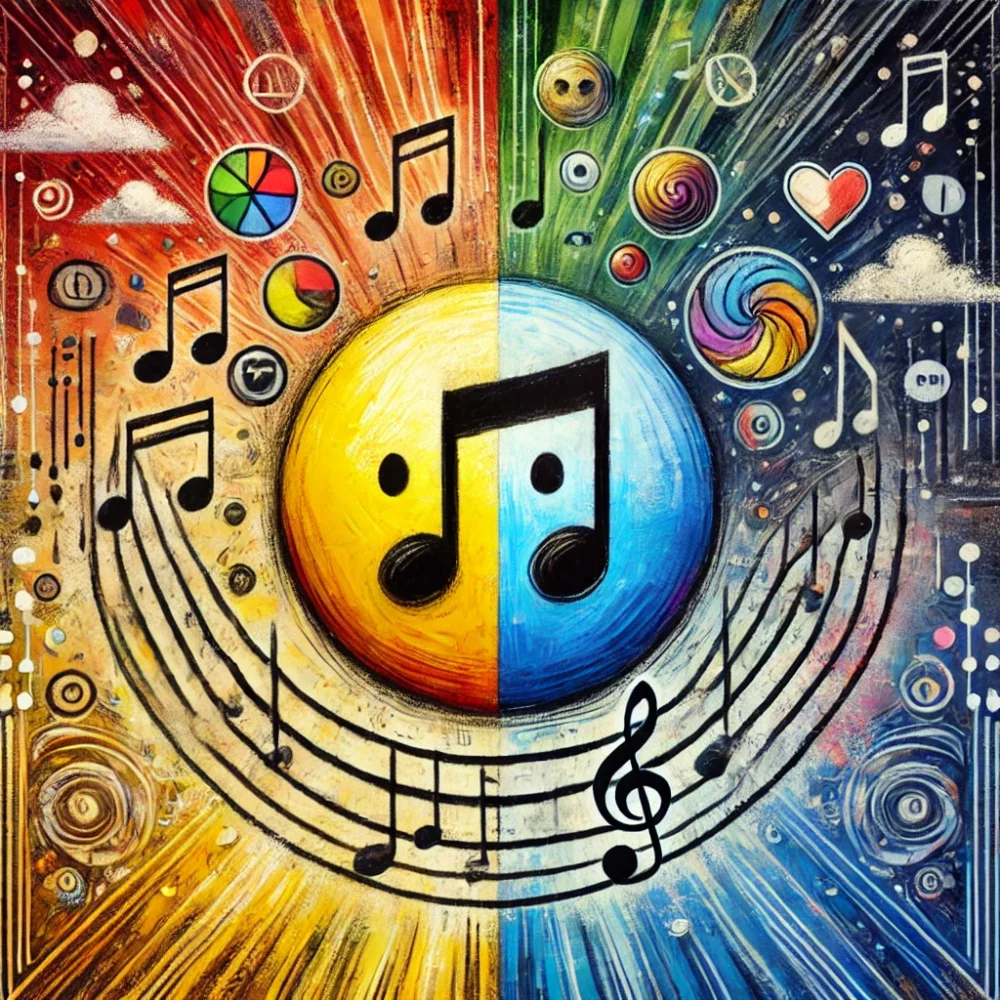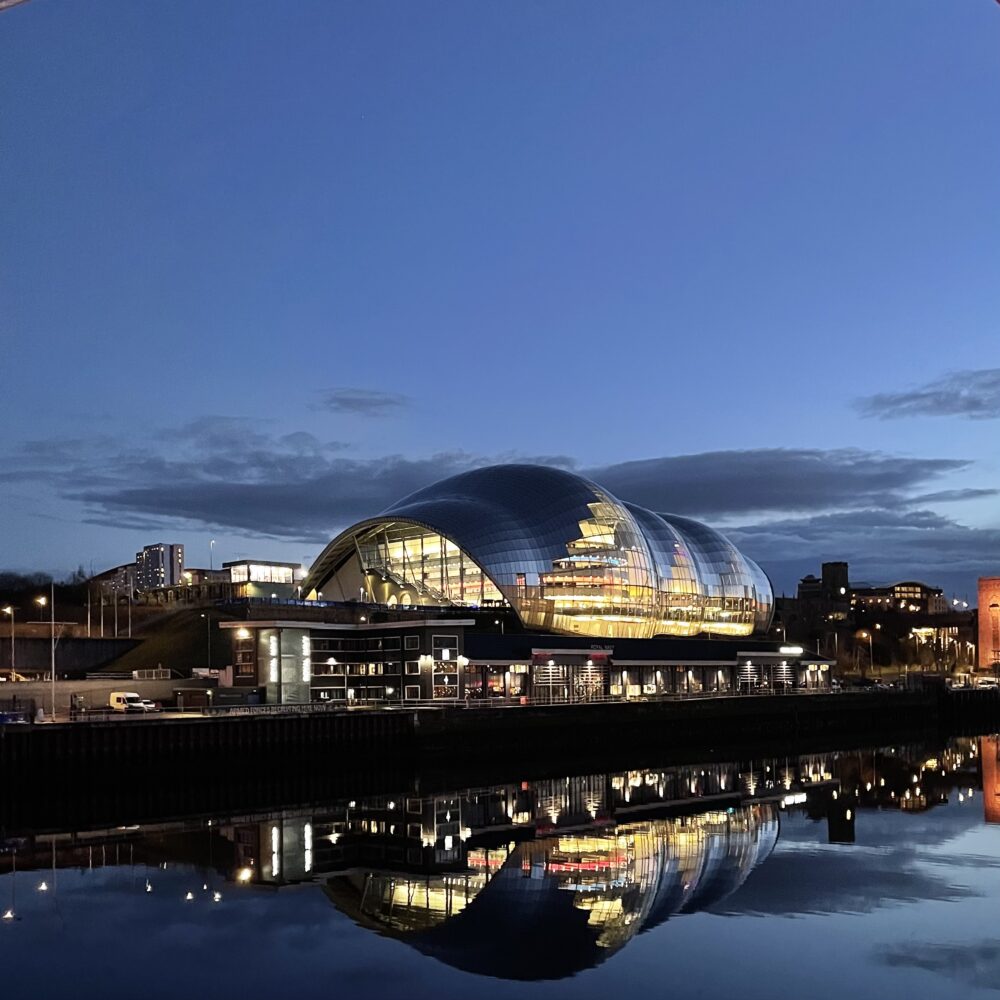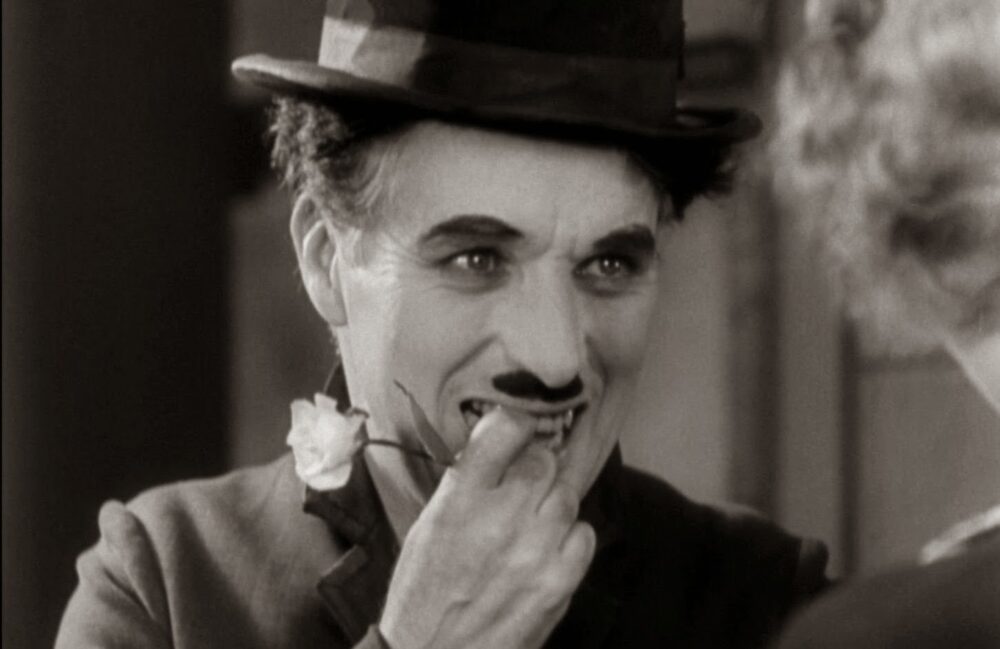Smile, though your heart is aching

My Spotify algorithm often serves up the version of Smile sung by Judy Garland (partly because of this) and Morecambe and Wise’s Positive Thinking.
I have long assumed that the latter was riffing on the former, but when I’ve looked into it, I’ve been unable to find any evidence to substantiate that. Superficially, the lyrics of both are about projecting and sharing happiness in a vaguely mindless way. Yet, the minor key underscores the melancholy of life. The combination of the two, along with clever word choices, highlights the desperation and necessity of maintaining a positive outlook at the worst of times. They are songs which are desperately bleak yet necessarily uplifting, a combination that’s common to the work of Charlie Chaplain and Morecambe and Wise. These layered emotions are no less common in the modern world than they have been in the past, but they’re less visible in the modern world.
The emotion the songs portray isn’t quite melancholy: it’s something a bit more cutting and urgent. Nevertheless, given my long-standing theory about the under-appreciation of melancholy, hearing these songs often leads me to reflect on the emotional infantalisation of society. Human emotion is as complex as ever, yet it seems to be that we’re increasingly encouraged to express it in marketable primary colours: Christmas is ‘brilliant’, riots are ‘terrible’, and politicians are ‘useless’. Nuance is discouraged.
Wendy and I were reflecting on this while watching the Olympics: there is undoubtedly a profound sadness to winning a gold medal. That’s not hard to understand: heck, it’s the combination of emotions portrayed in Disney’s The Jungle Book, in the song I Wan’na Be Like You: ‘I’ve reached the top and had to stop and that’s what’s botherin’ me’. In 1967, the Sherman brothers could communicate that complex and layered motivation to young children: in 2024, we rarely entertain the idea that a gold medal win is anything other than a happy occasion. Medalists may only perform that single emotion. They face the wrath of the press if they don’t comply.
Yet, if we all lived with primary-coloured emotions, there would be no good novels and certainly no opera. Jukebox musicals might be okay, tabloid newspapers would thrive, and there’d be no visible change to Loose Women or Good Morning Britain, but wither art and poetry.
It strikes me that the world would be a better, more understanding place if we acknowledged that we are all bundles of strange and conflicting emotions. To pretend that we experience only one thing at a time misses the essence of what it is to be human.
The image at the top of this post was generated by DALL·E 3.
This post was filed under: Music, Charlie Chaplin, Judy Garland, Morecambe & Wise.

